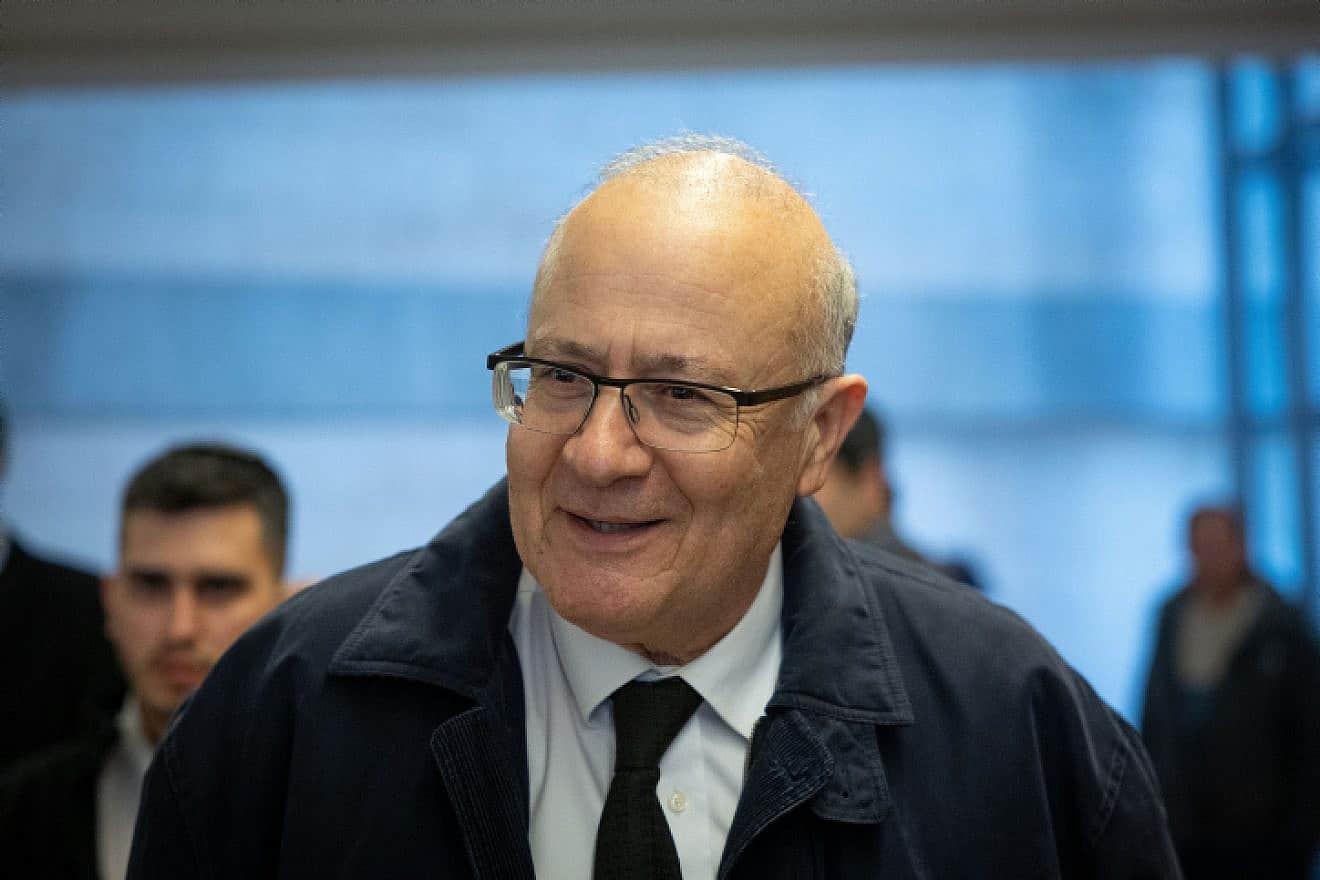In an unprecedented move, conservative Israeli Supreme Court judge Yosef Elron on Wednesday declared his intention to run for the position of chief justice. The current chief justice, Esther Hayut, retires in mid-October.
“I hereby inform you that I am presenting my candidacy for the office of the next president of the Supreme Court,” wrote Elron in an official letter addressed to Hayut and Justice Minister Yariv Levin.
For the past seven decades, the president of Israel’s Supreme Court has been chosen based on seniority, with only the longest-serving judge submitting their name to the Judicial Selection Committee. Liberal Justice Yitzhak Amit, who has served on the court since 2009, is next in line to succeed Hayut.
However, as part of the ruling coalition’s judicial reform initiative, Levin reportedly seeks to upend the traditional procedure, which is not anchored in law or court regulations. Levin’s plan also includes changing the way judges are selected so that democratically elected Knesset members will have majority say on the Judicial Selection Committee.
Currently, the committee comprises the justice minister, the Supreme Court president, two additional Supreme Court justices, one additional minister, two Knesset members and two representatives of the Israel Bar Association.
Judge Elron’s announcement comes as the court is preparing to hear petitions by opposition leader Yair Lapid and others against Levin’s refusal to assemble the Judicial Selection Committee. On Sept. 7, the Supreme Court, sitting as the High Court of Justice, will hear arguments demanding that the key panel be convened immediately.
Following Wednesday’s developments, Hayut moved to boot Elron off the case due to a conflict of interest.
According to the Walla news site, Elron’s shock decision was unrelated to the government’s judicial reform drive. The outlet cited an anonymous legal source as saying that Elron had wanted to submit his candidacy since his appointment to the court in 2017 because of “bad blood” between him and Amit. The two judges served together on the Haifa District Court in the early 2000s, the report added.
Elron told Walla he did not meet or speak with Levin, stressing that the decision was “personal” and not coordinated with the justice minister.
According to Kan News, Elron had first asked Supreme Court Judge Noam Sohlberg to submit himself for the top spot to prevent Amit from getting the job, submitting his own candidacy only when Sohlberg declined.
Still, others have pointed out that Levin prefers Elron over Amit, whose legal opinions tend to take a more activist approach. Notably, when the High Court struck down Aryeh Deri’s appointment as a cabinet minister in January, Elron was the sole dissenter.
To successfully challenge Amit, Elron needs a simple majority of five votes in the nine-member Judicial Selection Committee. Even if the committee convenes, given its current makeup, his chances seem low.
Should the committee not convene before Hayut resigns, her powers will automatically transfer to the court’s vice president, Justice Uzi Vogelman.


























